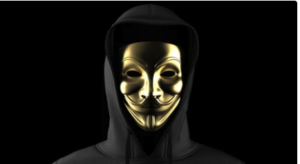Anonymous, often referred to as “hacktivists” or “hackers with a cause,” is a loosely organized and decentralized collective that has been a prominent figure in the digital world for more than a decade. While Anonymous is known for its unconventional methods, such as cyber-attacks and wearing Guy Fawkes masks, it is essential to understand that this group is multifaceted, with a wide range of motivations and actions. In this article, we will explore some key facts about Anonymous, shedding light on their history, activities, and impact on the digital landscape.

- Origins of Anonymous
Anonymous originated on the internet imageboard 4chan around 2003. Initially, it was a group of users who posted without revealing their identities, hence the name “Anonymous.” Their early activities were generally lighthearted, involving pranks and trolling. However, the group’s focus gradually shifted towards political and social activism, leading to their emergence as a hacktivist collective.
- The Iconic Guy Fawkes Mask
The Guy Fawkes mask has become the symbol of Anonymous. Inspired by the graphic novel “V for Vendetta” and its film adaptation, the mask represents resistance against oppressive authority. It conceals the wearer’s identity and signifies the power of the collective. Members of Anonymous often wear these masks at protests and online activities to protect their anonymity and display unity.
- Decentralized Structure
One of the defining characteristics of Anonymous is its decentralized structure. There is no formal leadership, hierarchy, or organizational structure within the group. Instead, individuals organize and participate in various operations and actions voluntarily, often driven by a shared interest in promoting causes like free speech, government transparency, and social justice.
- Diverse Motivations
Anonymous is not a monolithic entity; it consists of individuals with diverse motivations. While some members engage in hacktivism to promote political or social causes, others do it for the thrill of hacking or to express discontent with the status quo. This diversity in motives makes it challenging to categorize the group’s actions as a whole.
- Operation Chanology
One of the most well-known operations conducted by Anonymous is “Operation Chanology.” This operation targeted the Church of Scientology in 2008, primarily in response to the church’s attempt to remove a Tom Cruise video from the internet. Anonymous organized protests, distributed informational materials, and launched distributed denial of service (DDoS) attacks against Scientology websites. While the operation raised ethical questions, it also brought attention to the group’s potential influence.
- Support for WikiLeaks
In 2010, Anonymous garnered widespread attention for its support of WikiLeaks and its founder, Julian Assange. When several organizations, including PayPal and MasterCard, withdrew their support for WikiLeaks, Anonymous launched a series of DDoS attacks against these companies’ websites in what they called “Operation Payback.” This campaign was a significant display of the group’s ability to mobilize in support of causes they believed in.
- Occupy Wall Street
Anonymous was involved in the early stages of the Occupy Wall Street movement in 2011. They provided technical support and helped establish the movement’s online presence. While not a formal alliance, the collaboration highlighted the group’s willingness to support a wide range of social and political movements that align with their ideals.
- The Million Mask March
Each year on November 5th, Anonymous supporters and activists take part in the Million Mask March. This event involves rallies and protests in major cities worldwide, where participants wear Guy Fawkes masks to symbolize their resistance to government surveillance, censorship, and corporate influence. The event serves as a platform for individuals to voice their concerns about a variety of issues.
- Legal and Ethical Questions
Anonymous’ activities have raised significant legal and ethical questions. While some see them as champions of free speech and defenders of transparency, others view their actions as cybercriminal activities. Anonymous’ use of DDoS attacks, for instance, has been debated in terms of its legality and ethics. The decentralized nature of the group also makes it challenging to hold individuals accountable for their actions.
- Shifting Focus
Over the years, the focus of Anonymous has shifted. While hacktivism remains a significant part of their activities, the group has also diversified into other forms of activism, such as supporting global protests and advocating for digital privacy and security.
Conclusion
Anonymous is a complex and multifaceted collective of individuals with diverse motivations and a commitment to digital activism. Their use of unconventional tactics, such as cyber-attacks and the iconic Guy Fawkes masks, has made them a prominent and controversial presence in the digital world.
While some view Anonymous as heroes who fight for free speech and transparency, others see them as cybercriminals who engage in illegal activities. Their decentralized structure and ever-evolving focus have contributed to the group’s enigmatic nature. Regardless of one’s perspective, Anonymous continues to play a significant role in shaping conversations surrounding online activism, digital rights, and the power of the collective voice in the digital age.